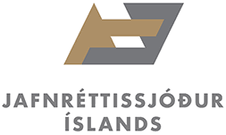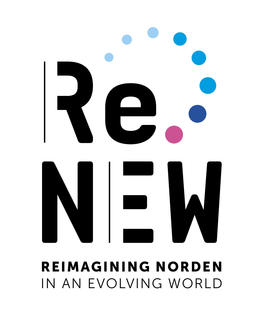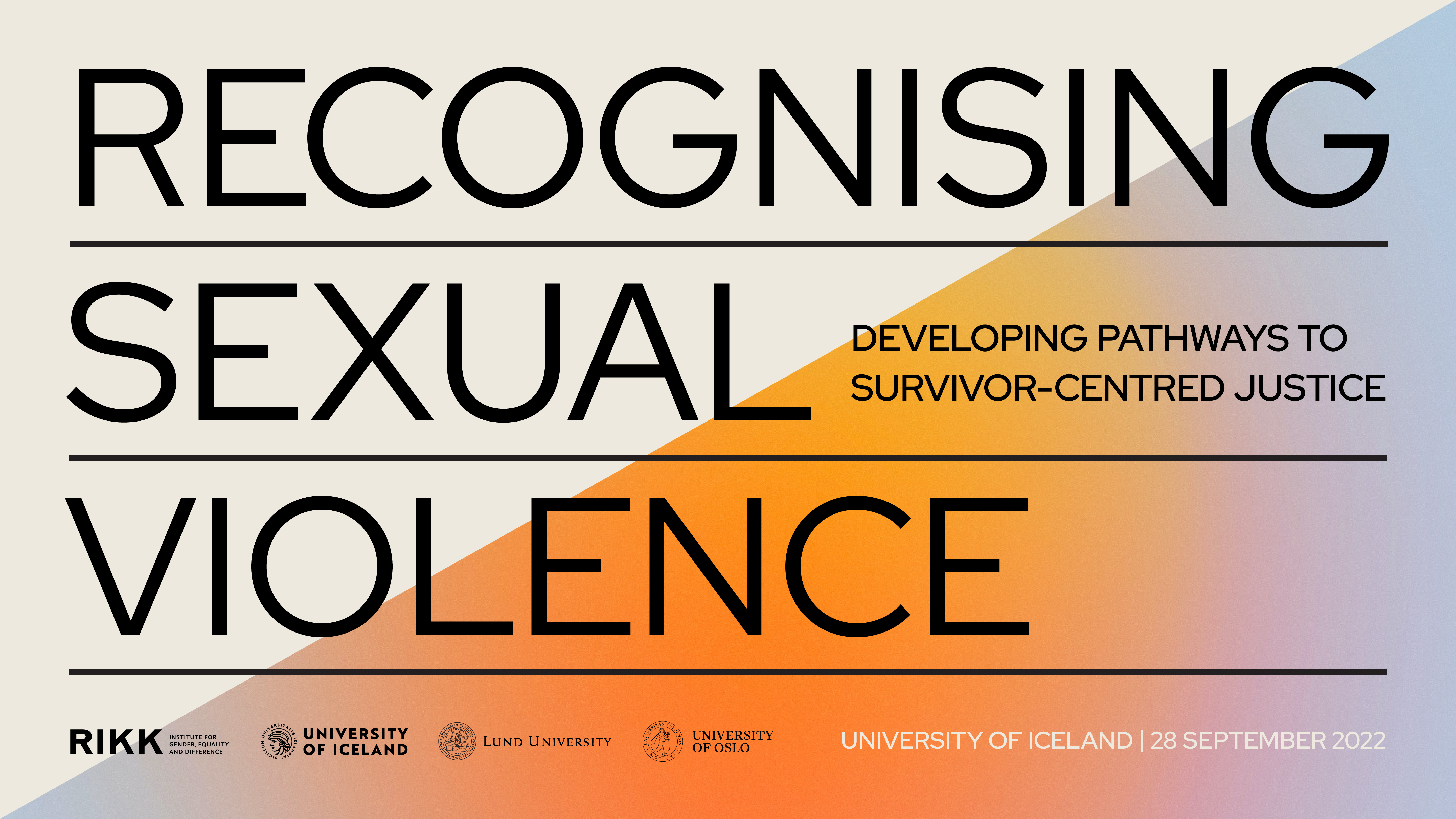In the political imaginary, the meaning of justice in cases of sexual violence is usually equated with criminal justice. However, research shows that justice for survivors of sexual violence is a more nuanced and complex phenomenon. Taking survivor-centred justice seriously demands the rethinking of different justice mechanisms and the creation of different political, social and legal pathways to justice. To address the “justice deficit” in cases of sexual violence the international conference Recognising Sexual Violence: Developing Pathways to Survivor-Centred Justice will explore alternative approaches to justice as part of efforts to hold the state and offenders to account.
The conference takes place on 28 September 2022 in the Aula in the Main Building at the University of Iceland. The conference is open to all and consists of five panels and a plenary session exploring the topic across different themes and regions with a particular emphasis on the Nordic context. A closed Nordic workshop will also be held parallel to the conference.
The conference is organised by RIKK – Institute for Gender, Equality and Difference at the University of Iceland in coordination with the Law Faculty of Lund University and the Department of Criminology and Sociology of Law at Oslo University. The conference received funding from the Icelandic Gender Equality Fund, the Nordic Council of Ministers, and the Icelandic Prime Minister’s Office. The Nordic workshop received funding from ReNEW.
Recordings from the conference are available here below.
Recognising Sexual Violence
Developing Pathways to Survivor-Centred Justice
28 September 2022
Programme
Conference Chair: Hildur Fjóla Antonsdóttir, postdoctoral researcher at EDDA Research Center at the University of Iceland
Opening Remarks
8:30 – 8:45
Irma Erlingsdóttir, professor and director of RIKK – Institute for Gender, Equality and Difference and EDDA Research Center
Administrative Justice and Labour Law
8:45 – 10:00
Vanessa Munro, Professor of Law at University of Warwick, Ulrika Andersson, Professor at Department of Law at Lund University, and María Rún Bjarnadóttir, Director for Internet Safety at the National Commissioner for Police, Iceland
Chair: Linnea Wegerstad, senior researcher at the Department of Law at Lund University
Vanessa Munro: Risk, Reputation and Responses to Student Sexual Violence on UK University Campuses
This paper is based on research, conducted and published by Sharon Cowan and myself, which explores the adequacy of existing institutional responses – within UK universities – to complaints of student sexual violence and misconduct. It cautions, in particular, about a current drift towards ‘mimicking’ criminal justice processes, which is apt in many cases to frustrate the possibility of more trauma-informed and tailored responses. It also highlights ongoing difficulties over, amongst other things, how – in a context in which universities assume ethical values that include dignity, privacy and safety – to best reconcile their duties to the individuals who make complaints, have complaints made against them, and the wider campus community.
Ulrika Andersson: Discipline or punishment? Sexual violence and harassment in administrative procedures at Lund University
María Rún Bjarnadóttir: Re-Framing the Response to Sexual Harassment in the Workplace
Recording from Opening and Panel 1: Administrative Justice and Labour Law
Tort Law and Compensation
10:15 – 11:30
Sharon Cowan, professor of Feminist and Queer Legal Studies at The University of Edinburgh, Solveig Laugerud, postdoctoral fellow at the Department of Criminology and Sociology of Law at The University of Oslo, and Karl Dahlstrand, Lecturer at Sociology of Law Department at Lund University
Chair: Ulrika Andersson, Professor at Department of Law at Lund University
Sharon Cowan: Criminal-ising or Civil-ising? Framing and Responding to Sexual Harm
In this paper I explore some of the recent cases in Scotland where survivors of sexual violence have initiated a civil claim for damages under tort law (or delict as it is known in Scotland), either because they did not want to engage with the criminal justice system, or following the acquittal of the accused at trial. Taking into account the different procedural frameworks and rules in criminal and civil contexts, I will analyse the interpretation and application of sexual offences legislation, including rules and practices relating to the introduction of evidence about a claimant’s sexual history or other private data (such as medical and other sensitive records). While acknowledging the advantages of the ‘civil-ising’ effects of a claim in delict, and drawing on growing literature that problematises a focus on carceral responses to sexual harm, I will suggest that both civil and criminal responses to sexual harm work to contain survivors’ narratives in particular ways, and that concepts such as restorative and transformative justice can be helpful in problematising over-simplistic, binary understandings of criminal versus civil law as appropriate responses to sexual harm.
Solveig Laugerud: A Punitive Turn In Crime Victim Policy? Changes in the State Funded Compensation Scheme in Norway
Criminal injuries compensation from the state constitutes an important part of Nordic welfare states as it promotes state funded victim welfare rather than penal measures. In September 2020, the Norwegian Ministry of Justice sent out for comments proposed amendments to the State Compensation Act. The Ministry proposed that compensation should only be paid by the perpetrator, not the state, after a criminal or civil court has ruled on the perpetrator’s liability to pay compensation.
The recently proposed changes to the compensation scheme were justified in the name of victims, still most of the consultative bodies that made comments to the proposed amendments when it was out on public review, criticized the proposal for impinging on victims’ interests, welfare, and rights. This suggests that the Authorities invoked the victim rhetorically as a symbol to justify their own punitive interests. This can be considered a way of manipulating the figure of the victim as a tool to implement a more punitive criminal policy.
In this paper, I will investigate how victim advocates attempt to resist new policies perceived to be detrimental to victims’ welfare and rights through an analysis of comments made to the proposed amendments.
Karl Dahlstrand: Compensation for Victims of Sexual Violence in Sweden. Some Empirical Findings From a Socio-Legal Perspective
The background of this study is my doctoral thesis in Sociology of Law “Violation and Satisfaction: A Sociology of Law Study of Non-Pecuniary Damages to Victims of Crime” (2012). After about ten years, I decided to make a replication based on the same method as in the original study presented in 2012. The general findings from the replication study are presented in the report “Violation and Satisfaction: Replication of a Socio-Legal Study“ (2022). Both studies include two surveys, one involving the public and the other involving crime victims who had received compensation for criminal injuries from the Swedish Crime Victim Compensation and Support Authority (Brottsoffermyndigheten). The study sample in the survey targeting the public consisted of self-recruited respondents from an online panel. The surveys consist of vignette questions selected from legal usage and questions about the victims’ experiences of the compensation. The legal rule about a victim’s right to compensation for the violation opens to different interpretations and several possible applications because of its vagueness. The study takes its starting point in how damages from criminal violations are determined. This type of non-pecuniary compensation to crime victims has a fundamental uncertainty regarding the computation of damages and what is meant by “violation” in the meaning of the law. There is also drift between the violation and the suffering, as to which the compensation is related. The violation dimension has a more “objective” connotation as a sanction in the sense of an attack on a protected interest within the rule of law. Whereas the suffering dimension focuses more on the “subjective”, individualized injury as the object of attack. According to the law, damages for violation should be set at a level reflecting the current social norms. Therefore, the compensation must be seen in relation to the context of criminal law, levels of punishment, the proportionality of the compensation in relation to the punishment and the crimes’ penal value.
When the results from the replication were analysed, an in-depth analysis was made based on gender and focusing on sexual offences. The result showed significant gender differences in terms of how the respondents estimated different sexual offences and how they perceived the compensation. The compensation for Victims of Sexual Violence has been criticized and debated for a long time from different perspectives. To develop pathways to survivor-centred justice, I think some of these empirical findings can be both theoretically interesting from a socio-legal perspective and of practical value.
Recording from Panel 2: Tort Law and Compensation
Criminal Justice
12:45 – 14:00
Linnea Wegerstad, senior researcher at the Department of Law at Lund University, Clare McGlynn, professor at Durham Law School at Durham University, and May-Len Skilbrei, professor at the Department of Criminology and Sociology of Law at the University of Oslo
Chair: María Rún Bjarnadóttir
Linnea Wegerstad: “Freedom of speech is the foundation of a democratic social order”. Justice themes in Defamation Judgments Related to #MeToo
Clare McGlynn: Beyond Criminal Justice. Intimate Image Abuse Survivors and the Search for Justice
May-Len Skilbrei: Criminal Law Reform on Sexual Violence. A Feminist Win, Penal Populism, or Both?
Criminal law‘s approach to sexual violence has undergone radical changes in many or most European jurisdictions in the last two decades. Definitions have been expanded and punishments have become more severe. There are conflicting views on how to best understand these developments. On the one hand, the female victim of sexual violence if often presented as a lever for more punitive approaches to crime more generally, as a strategic instrument for penal populism. Further, some also regard the broader definitions and harsher punishments for sexual violence as a based on moralism or as a prime example of the over-reach of the modern state. On the other hand, this development can be interpreted as a case of a recalibration of law and punishment in light of new knowledge and thinking about the harm of sexual violence. These conflicting interpretations of the development continue to co-exist. In this paper I use debates and deliberations on criminal law reform on rape in Norway as an inroad to discuss these two interpretations of the cause of reforms.
Recording from Panel 3: Criminal Justice
Restorative Justice
14:15 – 15:30
Shirley Jülich, associate professor at the School of Social Work at Massey University, Hildur Fjóla Antonsdóttir, postdoctoral researcher at EDDA Research Center at the University of Iceland, and Lindsey Pointer, assistant professor at Vermont Law School and collaboratively leads the National Center on Restorative Justice
Chair: May-Len Skilbrei, professor at the Department of Criminology and Sociology of Law at the University of Oslo
Shirley Jülich: Restorative Justice and Sexual Violence. The Perspective of Victim-Survivors
Hildur Fjóla Antonsdóttir: Beyond Restorative Justice. Call for Innovative Justice Practices from Sexual Violence Survivors in Iceland
The “justice deficit” in cases of sexual violence is increasingly receiving growing societal recognition. As a response to the failings of the criminal justice system, there is a growing demand for an examination of the possibilities of alternative justice mechanisms in such cases. In this presentation, I will explore the potential of using restorative justice in cases of sexual harassment and violence in the Icelandic context. I will discuss the international literature and best practices on the topic and then present some findings on survivors’ views on restorative justice in Iceland based on interviews conducted between January 2015 and January 2017. The findings indicate that survivors’ understandings of justice do not fit well with the aims of standard restorative justice practices. Finally, I will discuss the implications of these findings for the development of restorative justice practices, or rather innovative justice practices, in cases of sexual violence and harassment.
Lindsey Pointer: A Restorative Approach to Preventing Sexual Harm
Sexual harm is a widespread problem that demands approaches that focus on prevention, alongside those that respond to specific incidents of harm. This presentation will highlight the Sustained Restorative Dialogue process, a proactive restorative approach to understanding and addressing broader cultural issues that give rise to sexual harm. This process was first piloted at a university in New Zealand and uses a series of four circles that moved a group through an intentional restorative inquiry process. Research findings suggest that the process has potential for enhancing understanding and awareness and increasing communication on the topic, these being important precursors to transforming the cultural norms and climates that foster sexual harm.
Recording from Panel 4: Restorative Justice
Transformative Justice
15:45 – 17:00
Fiona Vera-Gray, deputy director of Child and Woman Abuse Studies Unit at London Metropolitan University, Melanie Brazzell, graduate student at the Department of Sociology at University of California, Santa Barbara, and Þorsteinn V. Einarsson, social media and podcast host and education activist on masculinities
Chair: Solveig Laugerud, postdoctoral fellow at the Department of Criminology and Sociology of Law at The University of Oslo
Fiona Vera-Gray: Telling Not Reporting?
Melanie Brazzell: What Really Makes Us Safe? Looking Transnationally at Abolition Feminism and Transformative Justice for Sexual and Partner Violence
Two recent global movements have upended the way we perceive violence: MeToo exposed overlooked and widespread sexual violence, while Black Lives Matter brought the realities of police violence to international attention. In looking for solutions to violence, however, at first glance these two movements might appear to contradict one another. Some see law enforcement as an appropriate answer to gender-based violence. Others have critiqued this “carceral feminism” (Bernstein 2007) by pointing out how criminal legal responses contribute to racialized mass incarceration. Yet women, trans, and queer people of color at the intersections of both anti-racist and feminist movements have rejected this contradiction. They argue that interpersonal violence (rape and abuse) must be understood in the context of state violence (policing and prisons) and vice versa to achieve intersectional justice and best serve the needs of marginalized survivors (INCITE! & Critical Resistance 2001). This presentation examines community-based alternatives to prison and policing for gender-based violence developed by abolitionist feminists across the Global North over the past two decades under the banner of the transformative justice movement.
Þorsteinn V. Einarsson: Monsters and Masculinties
Recording from Panel 5: Transformative Justice
Plenary Session: Developing Pathways to Recognise Sexual Violence
17:15 – 18:30
Clare McGlynn, professor at Durham Law School at Durham University, Lindsey Pointer, assistant professor at Vermont Law School and collaboratively leads the National Center on Restorative Justice, Linnea Wegerstad, senior researcher at the Department of Law at Lund University, May-Len Skilbrei, professor at the Department of Criminology and Sociology of Law at the University of Oslo, and Melanie Brazzell, graduate student at the Department of Sociology at University of California, Santa Barbara
Chair: Hildur Fjóla Antonsdóttir, postdoctoral researcher at EDDA Research Center at the University of Iceland




